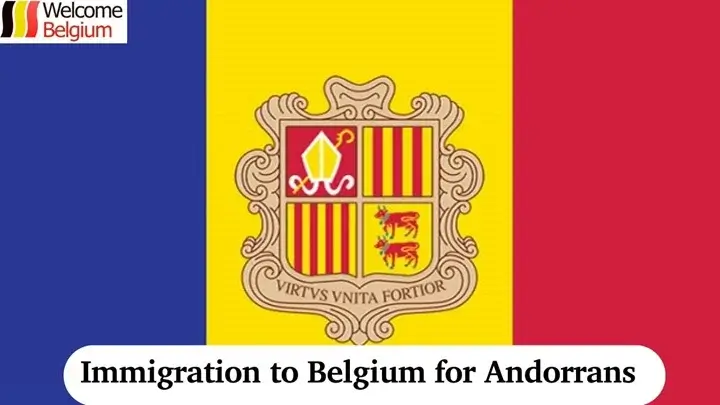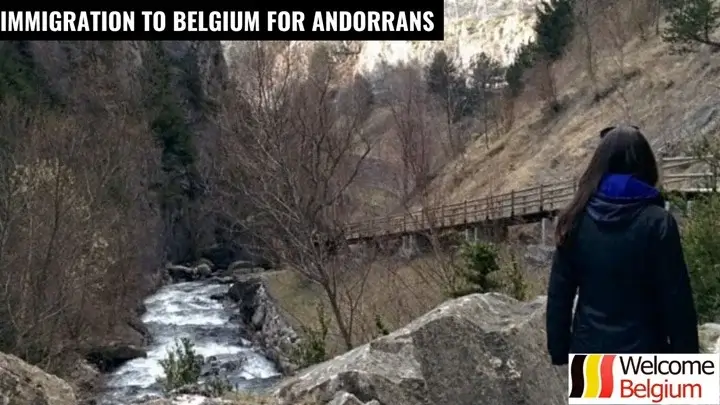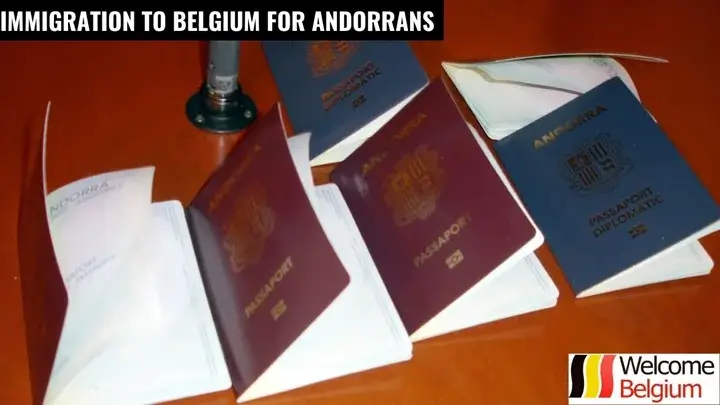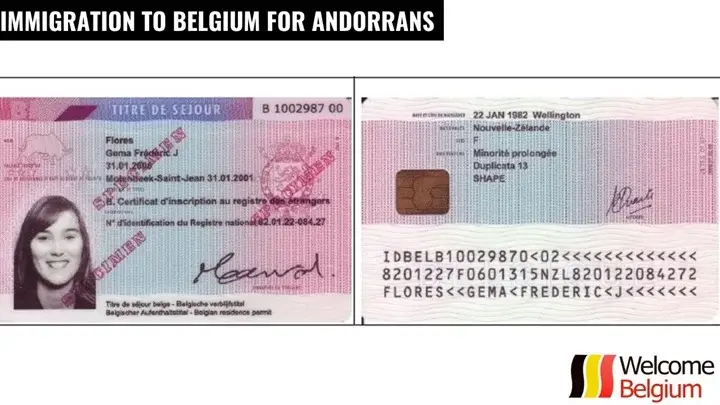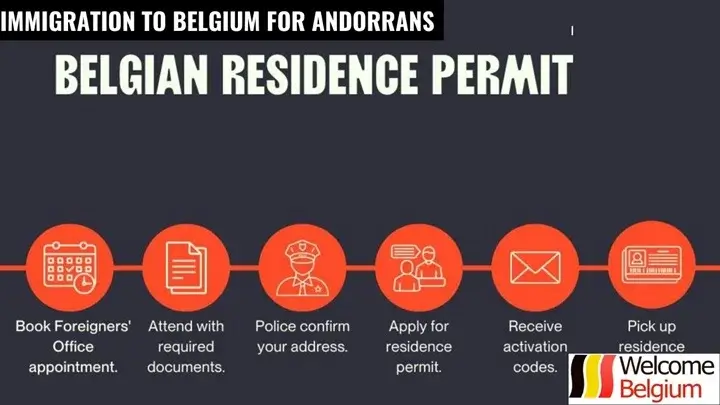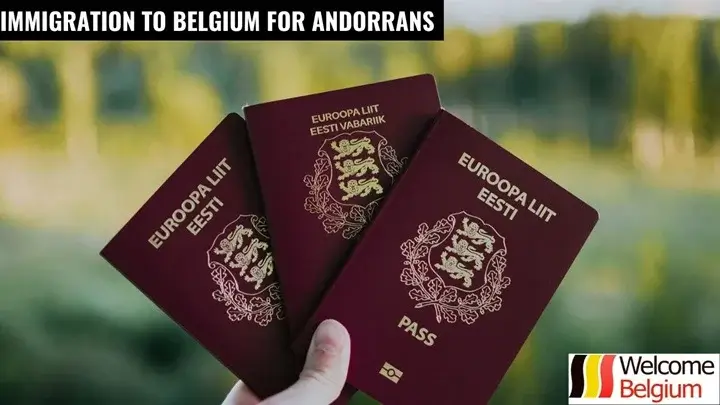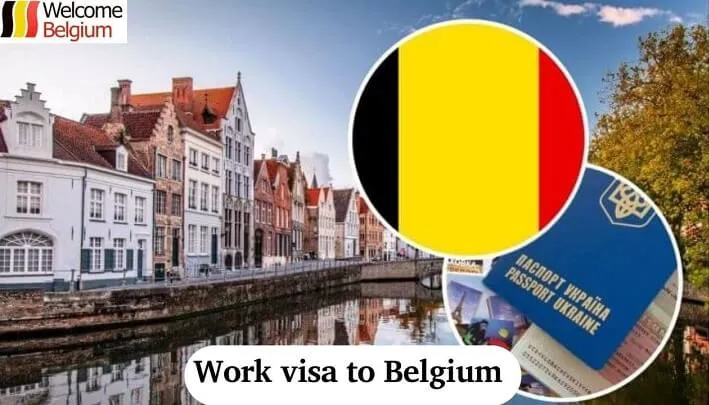Immigration to Belgium is becoming increasingly popular among Andorrans due to the high standard of living and career opportunities. Despite the small size of their homeland, Andorrans are eager to gain access to broad prospects in the European Union. In this article, you will find useful tips, information on visas and adaptation methods that will help make the move as comfortable as possible. Find out how to properly prepare for a new stage in life.
Reasons for immigration to Belgium of Andorrans
For Andorrans, Belgium is a country with a developed economy, a stable social system and many career opportunities. Emigration is motivated by the search for quality education, expanding professional horizons and a higher standard of living. At the same time, many Andorrans value the cultural diversity and convenient geographical location of Belgium. Let’s look at the key reasons that make this country attractive to Andorran emigrants.
Main reasons for immigration:
- Career and salary. Belgium offers many jobs in international companies with competitive salaries. For Andorran specialists, this is an opportunity to enter the European labor market.
- Belgium’s higher education institutions are among the best universities in Europe. Andorran students have access to a wide range of educational programs in several languages.
- Social security. High levels of social support, including health care, pension schemes and unemployment assistance, attract Andorrans seeking stability.
- Cultural diversity. Belgium is famous for its multicultural atmosphere, which helps expats adapt quickly.
- Ease of moving. The close proximity to Andorra and Belgium’s membership in the EU makes the immigration process easier and more accessible.
- High standard of living. Belgium offers comfortable living conditions, developed infrastructure and a quality of life that significantly exceeds Andorra.
- International relations. As a centre of European politics, Belgium offers unique opportunities for working and cooperating on the international stage.
- Opportunities for children. A strong primary and secondary education system makes the country attractive to families.
According to 2024 data, the number of Andorran immigrants in Belgium has increased by 15% compared to previous years. The main reasons are access to high-paying jobs, education and social guarantees. Most Andorrans settle in Brussels and large cities, where it is easier to find a job and integrate into local society. This trend is expected to continue in 2025.
And an interesting fact:
Andorrans most often choose Brussels for relocation because of the career prospects.
Types of visas for immigration
Choosing the right visa is a key step in immigration from Andorra to Belgium. The type of visa depends on the purpose of the move: study, work, business or family reunification. It is important to carefully study the requirements and processing times to avoid delays and problems with documents. Let’s look at the main types of visas and their features to make the preparation process easier.
Types of visas:
- Work visa. Allows you to work in Belgium on the basis of a contract. The validity period depends on the type of permit (usually 1–3 years). The cost of registration is about 200 euros.
- Student visa. For admission to universities or language schools. Valid for the duration of the study period. Consular fee – about 180 euros.
- Business visa. Suitable for entrepreneurs planning to open a company or invest in Belgium. Valid for up to 90 days. Cost: about 250 euros.
- Visa for highly qualified specialists. For workers with rare skills. Valid for up to 4 years with the possibility of extension. Cost: about 300 euros.
- Family reunion. For family members of Belgian citizens or residents. Validity period depends on the status of the family member. Cost – from 180 euros.
- Schengen visa. For short-term stays up to 90 days within six months. Cost – 80 euros.
- Research visa. For scientists invited to Belgian universities or research organizations. Valid for the duration of the research. Cost: about 250 euros.
- Humanitarian visa. For persons seeking asylum for political or social reasons. Issued free of charge.
- Volunteer visa. For participation in international volunteer projects. Valid for the duration of the project, cost – about 150 euros.
- Long-term national visa (type D). Suitable for study, work or other long-term purposes. Cost is about 200 euros, valid for 1 year with the possibility of extension.
When choosing a visa, it is important to consider the purpose of the trip, the length of stay and financial capabilities. It is also important to prepare all the necessary documents in advance and clarify the details at the Belgian consulate. Many visas require proof of financial solvency, so prepare bank statements or letters of guarantee. Pay attention to the application deadlines to avoid unexpected delays.
Tip:
Some types of visas allow you to change your status to a long-term residence permit while already in Belgium.
Legal aspects and documents
Immigration to Belgium for Andorrans requires compliance with certain legal formalities, including filing applications and obtaining the necessary permits. These documents regulate the right to reside, work, and access to social services. Familiarization with key legislation and its requirements will help avoid mistakes and speed up the process.
List of legal documents and laws:
- Type D visa – issued for long-term stay with the right to work or study.
- The registration card is a document that confirms your resident status in Belgium.
- Residence permit (Carte de Séjour) is a mandatory permit for living in the country.
- An employment contract is an agreement with an employer that is required to obtain a work visa.
- A certificate of no criminal record is a document confirming the absence of a criminal past.
- Health insurance is a mandatory requirement for all immigrants.
- Labor Migration Act No. 187/2023 – regulates the rights of foreigners to work.
- The Aliens Act No. 115/1980 is a general act that determines the procedure for the entry, stay and exit of migrants.
- Proof of financial solvency – required to demonstrate your ability to support yourself.
- Proof of residence – rental agreement or confirmation of accommodation with friends/relatives.
The immigration process to Belgium for Andorrans requires careful preparation of documents and compliance with all legal regulations. Most procedures can be completed independently, but consultation with an immigration lawyer will greatly simplify the process and protect you from mistakes. It is important to remember that laws may change, so it is always worth checking the relevance of documents and requirements in advance.
Tip:
To speed up the processing of documents, it is recommended to apply for a residence permit immediately after arriving in Belgium.
How can an Andorran obtain a residence permit in Belgium?
Moving to Belgium begins with preparing the necessary documents to obtain a residence permit. It is important to consider requirements such as employment, financial stability and health insurance. Understanding the application process and following all the steps precisely will help you avoid mistakes. In this section, we will look at the key steps that an Andorran needs to take to legally live and work in Belgium.
Stages of obtaining permanent residence in Belgium:
- Submitting an application to the Belgian Embassy. Andorrans must go to the Belgian Embassy to apply for a long-term residence visa. The application fee ranges from 180 to 200 euros.
- Collection of necessary documents. To obtain permanent residence, you will need a foreign passport, evidence of financial stability, confirmation of employment or study, and a certificate of no criminal record.
- Undergoing a medical examination. A certificate from a certified doctor is required, confirming the absence of infectious diseases. The cost of the examination is about 50-80 euros.
- Payment of the registration fee. To process the documents, you will need to pay a fee, which can be up to 250 euros.
- Registration at the local municipality. After moving, the Andorran must register at the municipal office of his place of residence.
- Receiving an ID card. After all documents have been confirmed, a resident card is issued, which confirms the right to stay.
If your application for permanent residence has been rejected, it is important to understand the reason for the rejection. In most cases, you can appeal or amend your documents. It is recommended that you seek the help of a professional immigration lawyer. Careful preparation and compliance with all formalities will increase your chances of successfully obtaining permanent residence.
Interesting fact:
Andorrans do not require a visa for short-term stays in Belgium of up to 90 days, which gives time to familiarize themselves with the procedure for obtaining a permanent residence permit.
Obtaining Belgian citizenship
Obtaining Belgian citizenship for Andorrans involves several stages, each of which requires attention and preparation. It is important to understand what documents need to be provided and what deadlines need to be met. Belgian citizenship offers many benefits, but the process can be complicated, especially for those moving from abroad. In this section, we will tell you what you need to know to successfully obtain Belgian citizenship.
Stages of obtaining citizenship in Belgium:
- Preparation of documents. First, you need to collect all the necessary documents, including proof of legal residence in the country, knowledge of one of the official languages, and financial independence. You may also need a certificate of permanent residence in Belgium.
- Application to the local municipal government. Applications for citizenship are submitted to the local municipality where you live. It is important to make an appointment in advance and prepare all original documents.
- Verification process. Once the application has been submitted, the verification process begins. During this time, all data is checked and the applicant’s language and social adaptation requirements are assessed.
- Payment of state duty. Obtaining citizenship is accompanied by the payment of a state fee, which depends on the applicant’s situation. The fee can range from 100 to 200 euros.
- Interview with authorities. Often, obtaining citizenship requires an interview with authorities to confirm your level of language proficiency and your willingness to integrate into Belgian society.
- Making a decision. After all procedures are completed and documents are checked, the authorities make a decision on granting citizenship. In case of a positive decision, you will be invited to participate in an official ceremony.
If you have been denied citizenship, do not despair. In this case, it is important to carefully study the reasons for the refusal and correct the deficiencies. You may need to go through the process again, as well as prepare additional documents confirming your suitability for citizenship.
Tip:
Knowledge of one of Belgium’s official languages is a requirement for citizenship, so learning the language will speed up the process considerably.
Integration into Belgian society
For Andorrans, as for other immigrants, integration into Belgian society is an important stage of life after moving. Belgium is a multilingual and multicultural country, and although Andorrans have a similar cultural base, it is important to consider that diversity and knowledge of languages are valued in Belgium. First of all, to successfully integrate, you need to not only get used to life in a new country, but also actively participate in the life of local communities, whether you find a job, attend cultural events or just communicate with locals.
Integration begins with learning the official languages of Belgium: Dutch, French or German, depending on the region where you plan to live. Although many Belgians speak English, knowing the local language makes the adaptation process much easier and helps you establish contact with locals. It is important to remember that in some regions of the country, such as Brussels and the Flemish Coast, knowledge of the language is the key to successful work and social integration.
In addition to the language, it is essential to take part in local cultural and social activities to successfully integrate into Belgian society. For example, participation in charitable organizations or volunteer projects can not only develop your understanding of Belgian traditions and values, but also create connections with locals, which will facilitate further adaptation. It is important to understand that Belgium is a country where active participation in public life is valued equally with personal initiative and the desire for self-development.
Another aspect of integration is to establish relationships with local authorities. This will not only help with bureaucracy, but will also show your willingness to become part of society. Belgium values order and respect for the law, and following these rules and regulations is vital for successful integration.
Integrating in Belgium requires patience and persistence, but the process opens up not only new opportunities for personal growth, but also doors to career and social prospects in this diverse and open country.

